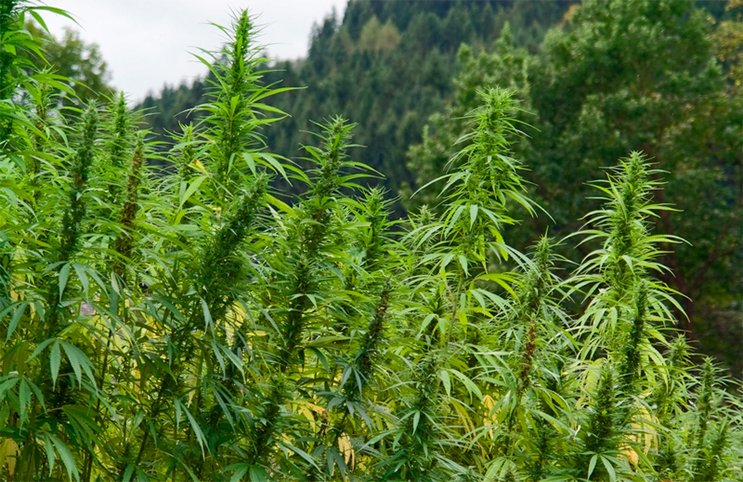Back on July 28, Congressmen James Comer (R-KY), Bob Goodlatte (R-VA), Jared Polis (D-CO) and Thomas Massie (R-KY) introduced a bill to remove industrial hemp from the Controlled Substances Act, which would make the production of hemp legal in the United States.
H.R. 3530, which is known as the Industrial Hemp Farming Act of 2017, would “amend the Controlled Substances Act to exclude industrial hemp from the definition of marihuana.” The bill also creates a new category transforming hemp research as a conventional crop at university and state departments of agriculture and stimulates more commercialization of industrial hemp.
How Will This Hemp Bill Give Farmers An Advantage?
Comer explained: “By removing industrial hemp from the definition of a controlled substance, the Industrial Hemp Farming Act will finally allow for responsible, commercial production of industrial hemp without fear of violating federal law.”
Goodlatte thinks that many Virginia farmers are interested in cultivating hemp, but that “outdated, though well-intentioned, federal restrictions” are in the way.
“Industrial hemp isn’t a new crop to the United States, but most Americans aren’t aware of the wide range of legitimate uses for it,” he said. “Last year, I had the opportunity to visit the Rockingham County farm of a participant in Virginia’s industrial hemp research program to see firsthand how this crop is grown and harvested.”
“The federal ban on hemp has been a waste of taxpayer dollars that ignores science, suppresses innovation and subverts the will of states that have chosen to incorporate this versatile crop into their economies” Polis noted.
Senators Ron Wyden (D-OR), Jeff Merkley (D-OR), Rand Paul (R-KY) and Mitch McConnell (R-KY) also submitted bipartisan companion bills to the Senate.
Rep. Massie, along with his co-sponsors, has been a supporter for hemp for several years. Massie showed special concern over an incident in back 2014 when the DEA seized a hemp seed delivery for a Kentucky hemp research project.
“Their seeds were confiscated by an overzealous DEA, that is turning a blind eye to marijuana in Colorado and Washington State, but the DEA saw fit to come to Kentucky and harass our state department of agriculture that had non-psychoactive hemp seeds,” Massie noted.
One of the most effective lobbyists for supporting hemp policy on Capitol Hill is Vote Hemp.
While pleased with the introduction of the bill, Vote Hemp is worried about several new corrections recently implemented on to the proposal, which they will work to eliminate or adjust. These include proposals to allow the DEA to conduct inspections of the hemp industry, instead of giving states the right to decide, restrictions on the processing of hemp extracts that will harm the emerging cannabidiol (CBD) industry, laws that enables the Food and Drug Administration to treat CBD as a controlled substance (this position is currently being challenged in federal court).
Vote Hemp said that “several changes we advocated for were included in the new bill: inclusion of Native American tribes and a provision which will allow for research on hemp with THC levels of up to 0.6% THC.”
Advocates of hemp legalization can secure passage of the Industrial Hemp Farming Act of 2017 by connecting with their congressional representatives. If you visit the Web Site for the House of Representatives, enter your zip code, follow the instructions on your representative’s webpage, you will be able to contact them.
MAPH Enterprises, LLC | (305) 414-0128 | 1501 Venera Ave, Coral Gables, FL 33146 | new@marijuanastocks.com










